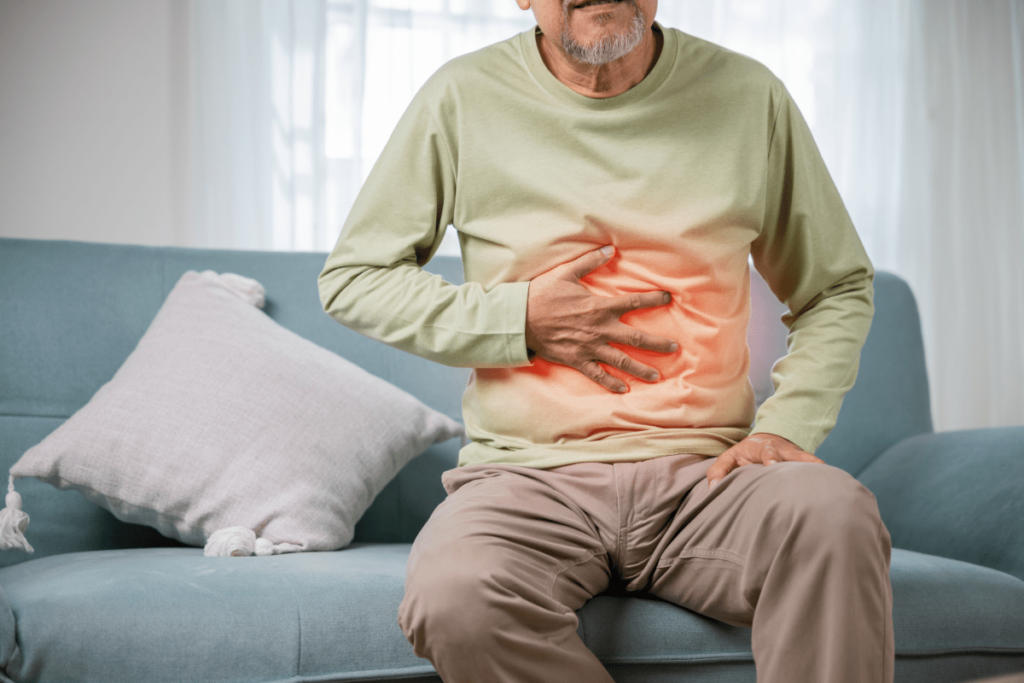Alcohol gastritis is a condition characterized by the inflammation and erosion of the stomach lining, which is primarily caused by excessive alcohol consumption.
Understanding the signs and symptoms of alcohol gastritis is crucial, as early detection can prevent further damage to the stomach and related health complications.
Peachtree Detox offers alcohol detox in Atlanta, Georgia to help individuals overcome alcohol use disorder.
Alcohol gastritis occurs when the stomach lining becomes inflamed due to chronic alcohol use. Alcohol irritates the stomach lining, reducing its protective mucus layer and making it more susceptible to damage from stomach acids.
Over time, this irritation can lead to ulcers, bleeding, and other complications. Alcohol gastritis can be acute or chronic and often requires medical intervention to prevent further damage.
Identifying alcohol gastritis early can significantly improve treatment outcomes and help manage symptoms more effectively. Here are the most common signs to look out for:

If left untreated, alcohol gastritis can lead to severe health complications, such as:
If you experience any of these signs and symptoms persistently, especially after consuming alcohol, it may indicate alcohol gastritis.
Severe symptoms like vomiting blood or black stool require immediate medical attention, as they could indicate significant internal bleeding.
Treating alcohol gastritis typically involves a combination of lifestyle changes, medication, and support for reducing alcohol consumption:
Lifestyle Modifications
Reducing or eliminating alcohol intake is critical. Many individuals with alcohol gastritis find that stopping alcohol use helps alleviate symptoms. Additionally, consuming smaller, more frequent meals and avoiding spicy or acidic foods can reduce symptoms.
Medication
Over-the-counter and prescription medications can help protect the stomach lining and reduce acid production. Proton pump inhibitors (PPIs), H2 blockers, and antacids can relieve discomfort and promote healing.
Nutrition Support
Following a balanced diet rich in vitamins, especially those that support stomach lining health, such as vitamin B12, can aid recovery. Nutritional counseling may be beneficial for those experiencing malnutrition due to alcohol gastritis.
Therapy Or Inpatient Treatment for Alcohol Dependence
For those who find it difficult to cut back or quit alcohol, therapy and support groups can provide additional help. Treatment options such as detox, inpatient rehab, and counseling can address underlying reasons for alcohol use and reduce the risk of relapse.
More: How Long Does Alcohol Stay In Your System?
If you or a loved one is experiencing signs of alcohol gastritis, professional treatment can provide relief and prevent long-term complications.
At Peachtree Detox, we offer comprehensive care for individuals struggling with alcohol use, including support for related health conditions like gastritis. Our medical team can help develop a personalized treatment plan that includes lifestyle changes, medications, and support for reducing alcohol intake.
Alcohol gastritis is a painful and potentially severe condition caused by excessive alcohol consumption. Recognizing the signs and symptoms of alcohol gastritis early and seeking appropriate treatment options can help alleviate discomfort and prevent long-term damage.
If you’re ready to seek help, contact a healthcare provider or treatment center today to learn more about how you can begin healing from alcohol gastritis.
Call us now or verify your insurance.